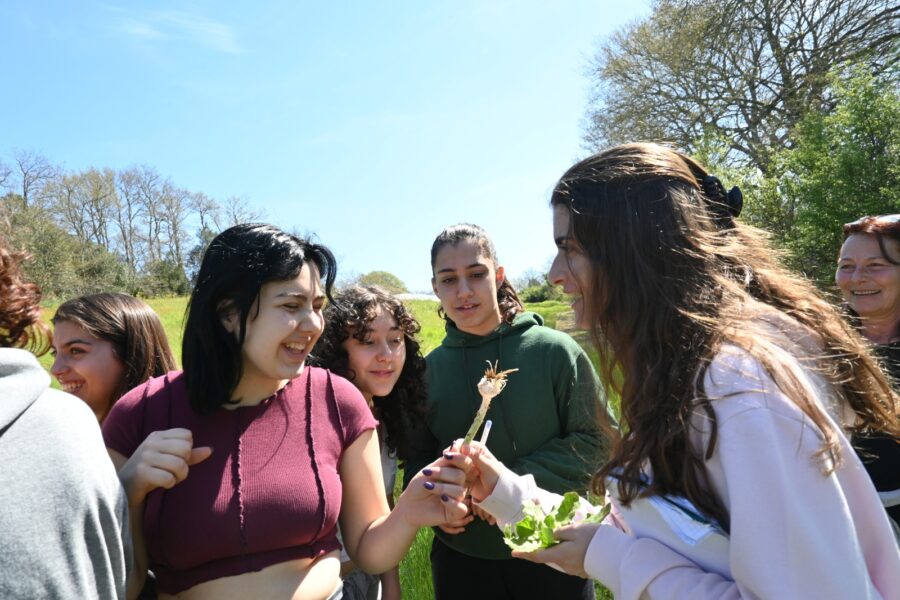
Biodiversity is life. And yet, life must be defended, protected, and celebrated. This is why the mobilization of citizens who demand healthy and nutritious food, of producers who want to work safely while preserving the land, and far-sighted administrations who want to invest in a sustainable economy, is necessary to stop the drift of corporate interests that are appropriating our primary sources of livelihood and well-being.
From June 5-7, 2023 Navdanya International organized what appears to be only a local event. But the issues and threats discussed, as well as the proposed solutions could also apply to any corner of the planet. Especially as corporate globalization applies the same lethal strategy everywhere. The attempt to seize our agroecological production systems by getting rid of small and medium farmers and ranchers, in order to strengthen a dystopian, global, single market is now well underway. However, Navdanya International’s mobilization on the ground in Italy, a country where food traditions are still very strong, demonstrates a growing public awareness and the real possibilities of how to get out of the vicious cycle that agribusiness multinationals are trying to lock us in.
Navdanya International’s series of events brought together various components of civil society; from politicians to journalists, from feminist groups to the younger generations, from producers to consumers.
On World Environment Day, a press conference was held at the Foreign Press Room in Rome where journalists from all around the world were invited. The event saw the launch of the ecofeminist manifesto, “Making Peace with the Earth”. The Manifesto presented by women from Navdanya International’s Diverse Women for Diversity Group, alongside Navdanya International’s President Dr Vandana Shiva, brings together the visions of women from different backgrounds and countries, united by the common vision of an ecological paradigm. The document highlights the importance of women’s roles for an ecological transition. It emphasizes the centrality of ecological and feminist epistemologies to rethinking the development model that has, to this day, dominated the globalized economy.
The subsequent meeting at the historic venue of the Casa Internazionale delle Donne in Rome further emphasized this link between ecology and the feminist movement, through the presentation of the short film produced by Navdanya International, “Voices of Diversity”. The film captures the testimonies of women from the Diverse Women for Diversity (DWD) network who met in March 2023 at Navdanya’s farm in Dehradun, India.
The meetings focused on the urgent need to stop the expansion of industrial, chemical, monocultures and revive biodiverse agroecological systems through restoring economic democracy and the social fabrics that have been compromised by the dictates of economic globalization. In order to meet the local community in Italy pushing for an ecological transition, Navdanya International’s mobilization moved from the heart of Italy’s political capital to the surrounding countryside. Here agroecological farmers clash daily with the advance of industrial agriculture in an effort to protect soils, air, water, and landscapes. The Biodiversity Festival, which took place in the town square of Bracciano, Italy featured local organic farmers who organized a farmers’ market accompanied by public debates on the importance of agroecology in protecting the land, and workshops on the theme of food and agriculture for children and adults.
Organized by Navdanya International, with the patronage of the municipality of Bracciano and numerous other associations in the area, the Biodiversity Festival was the result of a long process of networking among the many local organic farms, schools, representatives of municipalities bordering the lake and individual citizens who are pursuing the creation of a Biodistrict. The Biodistrict represents a collective, bottom-up initiative for the promotion and support of organic farming. Central to it is the gradual elimination of agrochemical use in the countryside, and for organizing grassroots resistance to the expansion of impactful monocultures, such as hazelnut.
Around the theme of biodiversity, good food and agroecology, the voices of the students and teachers who participated in the Navdanya International project Biodiversity is Life, the voices of farmers, policy makers, and representatives of the other biodistricts in Lazio gathered in the square, showing how the path to building biodiverse, resilient and poison-free territories must involve the local community, and the younger generations.
Navdanya International’s mobilization aimed to show how by acting locally, promoting the spread of ecological and diversified cultivation practices, new forms of collective organization can be experimented. Experiments which can become replicable in all territories, in accordance with their own cultural and ecological contexts. The example of the Biodistrict shows us the importance of the local community and the active participation of citizens in the care and protection of the local commons, such as water, biodiversity and food. Reconciling our production patterns with nature, to safeguard biodiversity from the onslaught of monocultures, is possible and is already happening thanks to these bottom-up mobilizations.
Also read
Agroecology, Biodistricts and Farmers’ Markets – A Celebration of Biodiversity
